This article may require cleanup to meet Wikipedia's quality standards. The specific problem is: Does not meet style guidelines (September 2017) (Learn how and when to remove this template message) |
The Ascent (Russian: ???????????, tr. Voskhozhdeniye, literally - The Ascension) is a 1977 black-and-white Soviet drama film directed by Larisa Shepitko and made at Mosfilm. The movie was shot in January 1974 near Murom, Vladimir Oblast, Russia, in appalling winter conditions, as required by the script, based on the novel Sotnikov by Vasil Byka?. It was Shepitko's last film before her death in a car accident in 1979. The film won the Golden Bear award at the 27th Berlin International Film Festival in 1977. It was also selected as the Soviet entry for the Best Foreign Language Film at the 50th Academy Awards, but was not accepted as a nominee.
| The Ascent | |
|---|---|
German poster - (left to right) Rybak, the village headman, Sotnikov, Basya, Demchikha | |
| Russian | ??????????? |
| Directed by | Larisa Shepitko |
| Written by | Vasil Byka? (novel) Yuri Klepikov Larisa Shepitko |
| Based on | Sotnikov by Vasil Byka? |
| Starring | Boris Plotnikov Vladimir Gostyukhin Sergei Yakovlev Lyudmila Polyakova Anatoli Solonitsyn |
| Music by | Alfred Schnittke |
| Cinematography | Vladimir Chukhnov Pavel Lebeshev |
Production company | Mosfilm |
Release date |
|
Running time | 111 minutes |
| Country | Soviet Union |
| Language | Russian German |
Screenplay
During the Great Patriotic War (World War II), two Soviet partisans go to a Belarusian village in search of food. After taking a farm animal from the collaborationist headman (Sergei Yakovlev), they head back to their unit, but are spotted by a German patrol. After a protracted gunfight in the snow in which one of the Germans is killed, the two men get away, but Sotnikov (Boris Plotnikov) is shot in the leg. Rybak (Vladimir Gostyukhin) has to take him to the nearest shelter, the home of Demchikha (Lyudmila Polyakova), the mother of three young children. However, they are discovered and captured.
The two men and a sobbing Demchikha are taken to the German headquarters. Sotnikov is interrogated first by local collaborator Portnov (Anatoli Solonitsyn), a former Soviet club-house director and children's choirmaster who became the local head of the Belarusian Auxiliary Police, loyal to the Germans. When Sotnikov refuses to answer Portnov's questions, he is brutally tortured by members of the collaborationist police, but gives up no information. However, Rybak tells as much as he thinks the police already know, hoping to live so he can escape later. The headman, now suspected of supporting the partisans, and Basya Meyer, the teen daughter of a Jewish shoemaker, are imprisoned in the same cellar for the night.
The next morning, all are led out to be hanged. Rybak persuades Portnov and the Germans to let him join the police. Sotnikov and the others are executed.
As he heads back to the camp with his new comrades, Rybak is vilified by the villagers. Realizing what he has done, he tries to hang himself in the outhouse with his belt, but fails. A fellow policeman begins calling for Rybak until Rybak opens the door. The policeman tells Rybak that their commander wants him, and leaves Rybak alone in the courtyard. Rybak stares out the open camp door. He begins to laugh and weep.
- Boris Plotnikov as Sotnikov
- Vladimir Gostyukhin as Rybak
- Sergei Yakovlev as Village elder
- Lyudmila Polyakova as Demchikha
- Viktoriya Goldentul as Basya Meyer
- Anatoli Solonitsyn as Portnov, the collaborationist interrogator
- Maria Vinogradova as Village elder's wife
- Nikolai Sektimenko as Stas'
Pre-production
All motion pictures are personal but the desire to film The Ascent was almost a physical need. If I had not shot this picture it would have been a catastrophe for me. I could not find any other material with which I could transmit my views on life, on the meaning of life.
—?Larisa Shepitko
Before The Ascent, the director Larisa Shepitko shot the film You and I. The filming took place under an atmosphere of severe stress. Technical and organizational difficulties led to the necessity of calling the ambulance for the director’s health care. The release of the film was not any easier; the censors deleted critical scenes and Shepitko had to fight for every single one of them. This struggle was not always successful. Despite the fact that the film was one of the prize winners at the Venice Film Festival, the removed scenes were a terrible blow to Shepitko, who believed that changing an important moment leads to the loss of main ideas.
For Shepitko it was a difficult time after the film's release. By her own admission the director was for the length of four months in "a monstrous mental and physical exhaustion." The realization what was subsequently necessary came to her suddenly when she was recuperating at a Sochi sanatorium, but her creative plans were undermined by a disastrous fall, which led to a serious concussion and a spinal injury. For a few weeks Shepitko was confined to bed. The situation was also aggravated by the fact that she was preparing to become a mother, but it was during her pregnancy that she came to an astute understanding of life in its whole complexity. Every day she was haunted by the possibility of death and reading the novel Sotnikov by Vasil Bykov in this period helped Shepitko express this state on the silver screen.
Screenplay
For the most part the screenplay written by Yuri Klepikov follows the novel. Shepitko turned to Klepikov on the recommendation of her classmate Natalia Ryazantseva but he was already busy working on another script. Basically Klepikov did not refuse but he asked to postpone working on The Ascent for a week. Shepitko urged him to start work immediately and one telephone conversation with her convinced him to drop everything he was doing. Klepikov by his own admission "could not withstand the energy of the typhoon whose name was Larisa" and started the task of revising the literary foundation which he later described as "a piping philosophical parable which combined the high spirit of man with his obvious desire to keep the body as a receptacle of the spirit ". The result of the work became a 70-page script that Shepitko then meticulously edited. Shepitko practiced the "engineer's" approach: she did not tolerate uncertainty or haziness in work and did not rely on director’s improvisation or creative inspiration. Every frame, every remark, every scene was carefully checked and aligned in advance. According to Yuri Klepikov even "the fruitful spontaneity was due to the very environment of the shoot," which was ensured by the carefully crafted script.
When adapting the script from Sotnikov the main concern of the director was not to lose the deeper philosophical content of the story. While the literary work by Bykov was full of sensual details like "icy cold", "famine", "danger", Shepitko strongly discouraged attempts to be satisfied with external action and demanded an "internal justification" of each movement, gesture and glance of the heroes. In order to express the spiritual states she often had to deviate from the literary basis. For example, in the finale of the story Rybak decides to hang himself in the latrine but discovers that he forgot to ask back for the belt which was taken by the policemen an evening before. Theoretically the film could portray the absence of the belt but then according to the writers the scene would be limited to the designation of the circumstances: informative but unimpressive denial in terms of the artistic sense. The authors "returned" the belt to Rybak but he was deprived of the ability to hang himself; implying that even death refuses a traitor. Their idea was to leave Rybak alone with the knowledge of his fall. The following long close-up of majestic nature signified the freedom which Rybak desperately desires and was intended to emphasize the utmost despair "of a person who lost himself".
Shepitko's husband Elem Klimov invented the film’s title. Long ago in 1963, a tradition was established between the future spouses that for a good idea he would receive ten rubles. When they just started dating, Klimov came up with the name for Shepitko’s thesis film – Heat. Shepitko and Klimov decided to continue this playful approach of rewarding each other but after all the years of their union the Klimov alone received the ten rubles and only twice: for Heat and for The Ascent.
Beginning of Production
The next step was the need for the script’s approval from the State Committee for Cinematography. By that time Shepitko already gained a reputation of an "inconvenient" director and back in 1973 when she only raised the topic of making the film the answer from an official of the State Committee for Cinematography came back as a firm negative. The director did not make a confrontation but she also did not offer any other projects. Throughout her directing career Shepitko only started working on films if she felt that "if she does not do it, then she dies".
For help in overcoming the resistance of the authorities and the State Political Directorate, Shepitko turned to Gemma Firsova with whom she studied at VGIK who was an administrator of an association of military-patriotic films. Firsova was affected much more by the script than the novel and the same day went to the meet the Minister of Cinematography Philippe Ermash. In a conversation with the replacement of Ermash (in her memoirs Firsova did not call Boris Pavlenok by his name) Firsova said that she takes the script under her responsibility, with a lie that "everything will be fine with the State Political Directorate". Ermash’s replacement reacted skeptically to the pleas, and the subsequent process from approval to acceptance of the film’s actors, was accompanied by considerable difficulties. The main accusation was that Larissa allegedly made a "religious parable with a mystical tone" from the partisan story that which was insurrection to the atheistic Soviet cinema. Shepitko retorted that she is not religious and that a story about betrayal is antediluvian. According to her, Judas and Jesus have always existed and that if the legend connected with people then this means that it is alive in every person. Officials met Schnittke’s score with resistance and they ordered to remove the allusions to biblical texts.
From the moment she read the story Sotnikov, it took Larisa Shepitko four years to prepare and to obtain permits from the authorities to start shooting the picture.
Casting
Shepitko decided to use unknown or little known actors whose past roles would not cast a shadow on their characters in The Ascent. Because of this, she had to reject Andrey Myagkov who really wanted to act in the picture. The same fate befell Nicolae Hubenko. Vladimir Vysotsky who yearned to play Rybakov and because of that experienced jealousy towards the other candidates also did not pass the selection. At the time when the castings for The Ascent were taking place, Vysotsky was starring in the film The Negro of Peter the Great The filming took place at the "Mosfilm" sound stage, adjacent to where the castings were held, and during his breaks Vysotsky often went to see what was happening at Shepitko’s sound stage.
From the beginning of the search for the actor who would play Sotnikov, Larisa Shepitko instructed Emma Baskakova, her casting assistant, to keep in mind the image of Christ, although it was impossible to mention this out loud. Boris Plotnikov, a 25-year-old actor of the Sverdlovsk Theater turned out to be the best candidate for the role according to the director, but the officials of Goskino saw in Shepitko’s plan the intention to "drag Jesus on to the Soviet screen". Plotnikov whose repertoire until then largely included the roles of magical animals, even had to be made up for the purpose of greater glorification of the character so that the artistic council would approve him for the role. The actor went through seven test shots altogether for which he always had to fly to Moscow from Sverdlovsk.
For the role of Rybakov the director s
Watch movie The Ascent online on Amazon
Watch movie The Ascent online
Watch The Movie On PrimeSaudagar Full HD Movie Download
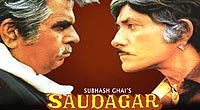
Sindoor (1987) Full HD Movie Download
.jpg)
Himmatwala (1983) Full HD Movie Download
.jpg)
Dhoondte Reh Jaoge (2009) Full HD Movie Download
.jpg)
Manzil Full HD Movie Download
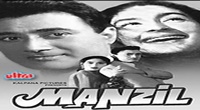
Jung (2000) Full HD Movie Download
.jpg)
Satya In Love Full HD Movie Download

Shankar IPS Full HD Movie Download
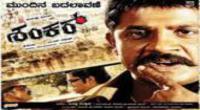
Ganga Kinnare Pyaar Pukkare Full HD Movie Download
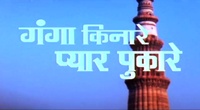
Rowdee Boss Full HD Movie Download
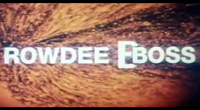
Aasayam Full HD Movie Download
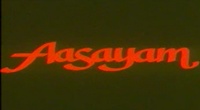
Chetabadi Full HD Movie Download
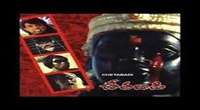
Chal Gajya Karu Majaa Full HD Movie Download
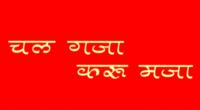
Batman Begins Full HD Movie Download

Adikkurippu Full HD Movie Download

Kanne Radha Full HD Movie Download

Dongalaku Saval Full HD Movie Download
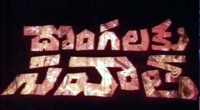
Peda Rasi Pedamma Katha Full HD Movie Download
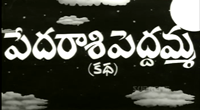
Mary Matha Full HD Movie Download

Anand Ashram Full HD Movie Download

Anusandhan (Bengali) Full HD Movie Download
.jpg)
Download latest Movie from bollywood
- 1> baaghi 3
- 2> THE SKY IS PINK MOVIE FULL STORY AND REVIEW
- 3> Luka Chuppi
- 4> TO ALL THE BOYS I’VE LOVED BEFORE
- 5> Kabir Singh
- 6> Street Dancer 3D
- 7> Simmba
- 8> Gone Girl
- 9> The Girl Who Lived
- 10> Ludo
- 11> DILWALE DULHANIA LE JAYENGE
- 12> GUILTY
- 13> The Godfather
- 14> Adventures of Rusty
- 15> Sooryavanshi
- 16> Satyameva Jayate 2
- 17> Thappad
- 18> Bhool Bhulaiyaa 2
- 19> KGFChapter 2
- 20> Mardaani 2
- 21> Pinjar
- 22> Shivaji maharaj
- 23> Ek Villian 2
- 24> Hungama 2
- 25> Divergent
- 26> Mumbai Saga
- 27> The Internship
- 28> HIT (telugu)
- 29> Panga
- 30> The perfect date
- 31> 16 December
- 32> Gopala Gopala (Telugu)
- 33> Brahmastra
- 34> Gangubai Kathiawadi
- 35> Manmadhudu
- 36> Nenu local
- 37> Mahanati
- 38> Shatamanam bavathi
- 39> Lagaan
- 40> After
- 41> MOM
- 42> Shamshera
- 43> Raguvaran BTech
- 44> Khakee
- 45> The villain
- 46> OM
- 47> Mr. perfect
- 48> Bueatifull mind
- 49> Hichki
- 50> Gabbar Singh
- 51> Jogi
- 52> Before Sunrise
- 53> Before Sunset
- 54> Before Midnight
- 55> The Big Bull
- 56> Top Gun: Maverick
- 57> The Purge
- 58> The Sky is Pink
- 59> Laxmmi Bomb
- 60> Sadak 2
- 61> Sufna
- 62> Prithviraj
- 63> PK
- 64> Coolie No 1(2020)
- 65> Black Widow
- 66> Dear Zindagi
- 67> Dil Bechara
- 68> PHIR HERA PHERI
- 69> WAR
- 70> Dostana
- 71> RRR: Roudram Ranam Rudhiram
- 72> Maidan
- 73> Dabbang 3
- 74> Chhalaang
- 75> life as we know it
- 76> SherShaah
- 77> Sandeep Aur Pinky Faraar
- 78> Event Horizon
- 79> 83
- 80> Radhe: Your Most Wanted Bhai
- 81> Gunjan Saxena: The Kargil Girl
- 82> Mr India
- 83> Vivah
- 84> Anokha Bandhan
- 85> Ghost
- 86> Bhoot: Part One - The Haunted Ship
- 87> Haseen Dilruba
- 88> Laal Singh Chaddha
- 89> Qismat
- 90> Rajput
- 91> Drive
- 92> Dil Chahta Hai
- 93> Dil Ki Baazi
- 94> Dil Ka Rishta
- 95> Teesri Manzil
- 96> Dil
- 97> Love Aaj Kal
- 98> Khaali Peeli
- 99> Bunty Aur Babli 2
- 100> Atrangi Re
- 101> Gulabo Sitabo
- 102> Jodi
- 103> Suraj Pe Mangal Bhari
- 104> Deewana
- 105> Attack
- 106> Sardar Udham Singh
- 107> Toofan
- 108> THE LOVEBIRDS
- 109> Jersey
- 110> Ginny Weds Sunny
- 111> Thalaivi
- 112> Shiddat
- 113> Angels vs Zombies
- 114> Koi Mil Gya
- 115> Thank God
- 116> Bhuj: The Pride of India
- 117> Hum Aapke Hain Kaun
- 118> The Platform
- 119> Bird Box
- 120> Roohi Afzana
- 121> Torbaaz
- 122> Nikamma
- 123> World War Z
- 124> Extraction
- 125> Train to Busan
- 126> Life of Pi
- 127> SHAADI MEIN JROOR AANA
- 128> Himmat Aur Mehnat
- 129> To All The Boys: P.S. I Still Love You
- 130> Mimi
- 131> Good Newwz
- 132> Shubh Mangal Zyada Saavdhan
- 133> Raabta
- 134> Harry Potter and the Philosopher's Stone
- 135> Harry Potter and the Chamber of Secrets
- 136> Chhapaak
- 137> War of the Worlds
- 138> Harry Potter and the Prisoner of Azkaban
- 139> Harry Potter and the Goblet of Fire
- 140> MURDER MYSTERY
- 141> Shakuntala Devi
- 142> Bachchan Pandey
- 143> Jayeshbhai Jordar
- 144> Sheer Qorma
- 145> Saina
- 146> 'O' Pushpa I hate tears
- 147> Kedarnath
- 148> MS Dhoni The Untold Story
- 149> Chhichhore
- 150> Badhaai Ho
- 151> Unstoppable
- 152> Oz the Great And Powerful
- 153> The Girl on the Train
- 154> Haathi Mere Saathi 2020
- 155> The Conjuring: The Devil Made Me Do It
- 156> Gandhi Se Pehle Gandhi
- 157> The Song of Scorpions
- 158> Srimanthudu
- 159> Hello Guru Prema Kosame
- 160> Beauty and The Beast
- 161> Black Panther
- 162> Charlie and the Chocolate Factory
- 163> Bole Chudiyan
- 164> Fidaa
- 165> Duvvada Jagannadham
- 166> Bruce Lee: The Fighter
- 167> Hyper
- 168> Yaara
- 169> Red (2020)
- 170> Shivam
- 171> That Is Mahalakshmi
- 172> Nishabdham
- 173> Aashram 2020 web series
- 174> Laxmii
- 175> Mismatched
- 176> STUDENT OF THE YEAR 2
- 177> NAIL POLISH
- 178> Ramprasad Ki Tehrvi
- 179> KAAGAZ
- 180> 12 o Clock
- 181> The Power
- 182> bolo hau
- 183> Tribhanga
- 184> JAMUN
- 185> Madam Chief Minister
- 186> Maasaab
- 187> Aadhaar
- 188> Tanhaji
- 189> Bhaagi 3
- 190> Bhootnath
- 191> MALANG
- 192> Jai Mummy Di
- 193> Haathi Mere Saathi 2021
- 194> Shakeela
- 195> Unpaused
- 196> Annayya
- 197> Vamsoddharakudu
- 198> Mrugaraju
- 199> Narasimha Naidu
- 200> Sankranti
- 201> Manasu Maata Vinadhu
- 202> Anjaane
- 203> Apaharan
- 204> Bachke Rehna Re Baba
- 205> Bewafaa
- 206> Roohi
- 207> Radhe
- 208> Zindagi Khoobsoorat Hai
- 209> Yeh Mohabbat Hai
- 210> Yeh Kya Ho Raha Hai?
- 211> The Tomorrow War
- 212> DehradunDiary
- 213> Meri Shaadi Karaoo
- 214> Matruu Ki Bijlee Ka Mandola
- 215> No One Killed Jesica
- 216> Aag Ka Goola
- 217> Eight Million Dollars
- 218> Three Hundred
- 219> Cats and Dog
- 220> Decoy
- 221> Gold Rush
- 222> You Have Got Mail
- 223> Final Destination three
- 224> Tofan
- 225> Jungle
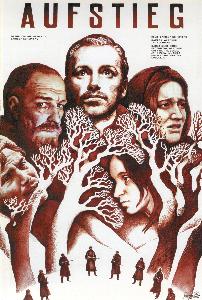 Story of movie The Ascent :
Story of movie The Ascent : 